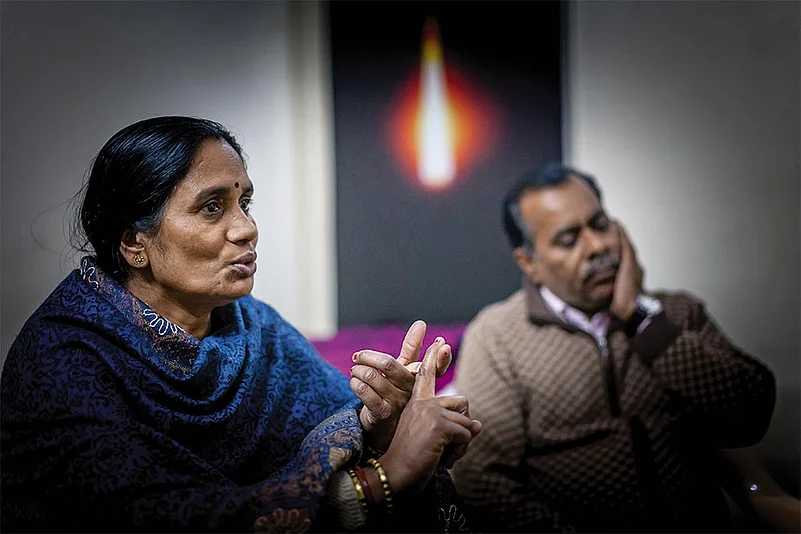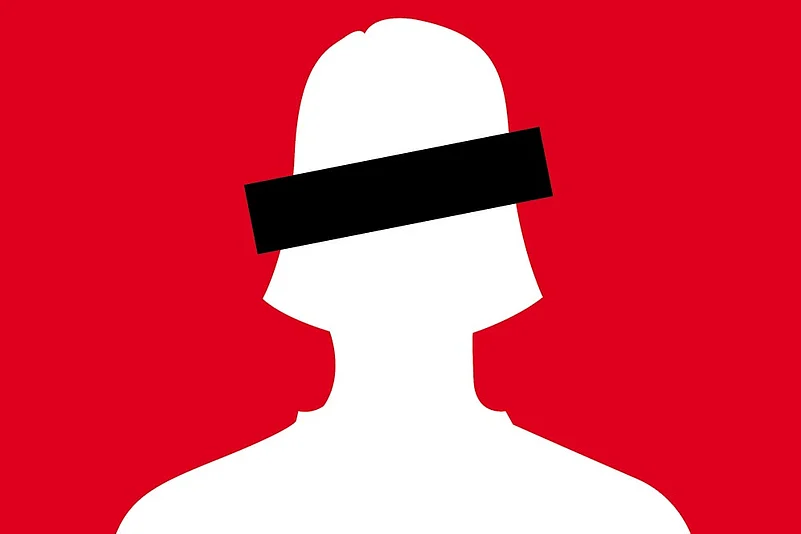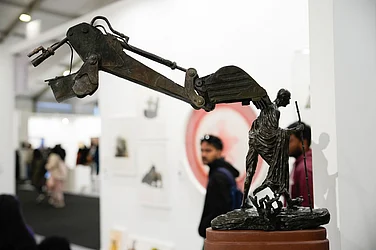In June 2013, Suzette Jordan emerged out of a shell called the “Park Street rape victim”, as she had been dubbed in headlines till then. Jordan got that faceless moniker in early 2012, after she was gangraped in the city’s posh entertainment district. The media was complying with the law, which prohibits publishing the names of sexual assault survivors.
Following her disclosure, Jordan—a strong-willed individual and a pillar of support for her children—said she had spent a suicidal year-and-a-half after the rape, when she felt everyone would judge her and snidely whisper, ‘Park Street Rape Victim’, within earshot. Finally, after an emotionally draining visit to the site of a rape and murder of a minor in West Bengal, she was driven to reveal her identity in order to reclaim her life.
That, however, is one end of the picture. Many, such as senior advocate Rebecca John, caution against trying to champion such throwing off the cloak of victimhood.
“This is entirely up to the person concerned and can’t be strait-jacketed in a formula. It has taken some women immense courage to come forward, but for those who haven’t, it doesn’t signify cowardice. I respect both kinds of women for their choices. In many cases, there is no solidarity for women who are filing a complaint,” she says.
“In a workplace, when a sexual assault survivor discards her anonymity, it follows her and can jeopardise her career. If a junior woman lawyer makes a complaint of harassment or assault against a senior lawyer, his colleagues at the Bar look at her with suspicion and their lives and careers can be at stake,” says John.
Yet recently, there have been some women who have spoken about sexual assault and harassment on social media and gained support and empathy, before approaching the police.
“Do not ask women to become martyrs and superwomen. When survivors do disclose their identity, it’s a result of the support and confidence that their immediate surroundings offers them. Bhanwari Devi was able to stand up because she was part of a women’s movement which supported her. Jordan found it offensive to be referred to as ‘the Park-Street rape victim’ and face snide aspersions, such as her being a sex worker,” says advocate Vrinda Grover.

Nirbhaya’s parents Asha Devi and Badrinath Singh
She further adds, “The onus is on society and the legal system. We haven’t given survivors the confidence to disclose their identities. It is our failure if we are unable to give them a conducive atmosphere.”
Indeed, a miasma of fear and insecurity spawns violence. In a July 2016 case in Maharashtra, a 14-year-old girl had been raped, tortured and murdered by three men in her village. Later, her brother said that earlier on the same day, the accused had tried to assault another girl, who had not reported it. Not raising an alarm, he felt, may have emboldened the men, leading them to target his sister.
In 1983, Section 228A was added to the Indian Penal Code (IPC) to prohibit any disclosure of details that could reveal the identity of a sexual assault survivor, except when the survivor herself discloses her identity; or it’s disclosed by her next of kin, if the victim is deceased or of unsound mind. The legislative intent was to allow rehabilitation of the survivor in India’s complex social fabric.
In 2004, the Supreme Court extended this to verdicts as well, “keeping in view the social object of preventing victimisation or ostracism of the victim of a sexual offence for which Section 228-A has been enacted, it would be appropriate that in the judgments...the name of the victim should not be indicated, we have chosen to describe her as ‘victim’ in the judgment”.
This is not a legal requirement in many countries. In the US, some states do prohibit publishing names of victims but, crucially, protecting the identity while reporting such cases is usually a media thumb rule.
But the issue is contentious even there. In a 1993 research paper by Deborah Dennoe in the Fordham Law Review, many felt that withholding identities was a form of male chauvinism; some even said that self-censorship could be demeaning. The same study also quoted a National Women’s Study, which reported “that 76 per cent of the American women and 78 per cent of rape victims surveyed favoured legislation that prohibited the media from disclosing rape victims’ names”.
In December 2012, a 23-year-old woman was brutally gangraped by three men and a minor and succumbed to her injuries a few days later. The horrific incident sparked off nationwide protests and saw a remarkable consolidation of civil society wrath and indignation about violence against women in India. The media dubbed her ‘Nirbhaya’, or the fearless. After a gap of a few years, Nirbhaya’s parents, father Badrinath Singh (57) and mother Asha Devi (52), have decided that her daughter should be remembered by her name, Jyoti Singh.
“Why should we hide ourselves and our identities, or that of our deceased daughter? Neither she nor we have done anything to be ashamed of. It is the offenders and those who support them who should be ashamed. First it is the survivor who suffers trauma, then families add to this by repeatedly using the incident and the shame around it to cut her off for the rest of her life,” says Asha Devi.
Both parents feel that the law protecting women survivors’ identities allows for their rehabilitation and anonymity for those who want it. But, it is the social practice of shaming victims and the stigma attached to sexual assault that make it difficult for survivors to come forward. Could this stigma, the culture of silence it breeds, as well as not disclosing identities embolden sexual offenders?
“When you don’t reveal a survivor’s identity, you are enabling such crimes to continue,” opines Badrinath. “And violence against women hasn’t gone down since December 2012, as figures show. There was a lot of outrage when our daughter was assaulted. That kind of outrage should happen each time such heinous crimes are reported, otherwise the system doesn’t take it seriously.”
“Shame has become a weapon for some men as they know most women will not come forward to report this crime because of the stigma attached to it. It is because of this that women are unable to walk with freedom,” says Asha Devi, adding that families must step up to support sexual assault survivors.
Rebecca John says that a robust prosecution and justice delivery system is the greatest deterrent to crimes against women. “Social circumstances are also very different from case to case. In many cases, there is no public solidarity and all cases are not in major metros. Look at cases that come from Muzaffarnagar or from remote corners of Kerala or Andhra. It is quite wise to not reveal their identities. Is there a consequence? I don’t think so. It serves to stop her from being further persecuted and assaulted. In given cases, there is absolute need for the anonymity,” she says.
“We still have a very low conviction rate, so how would the law act as a deterrent? There is no political will to make systemic changes and we have a corrupt and flawed investigative and justice-delivery system. The answers are not CCTV and surveillance by marshals. It is the duty of the government to create conditions of freedom. During the budget, an investment in the judiciary will directly help to make women secure,” says Grover.
Ironically, the justice system itself doesn’t often heed the legal requirement of not disclosing victims’ names. A 2015 report from Mumbai-based NGO Majlis showed that despite the SC guidelines, in 36 per cent of judgments in 2011-12, lower court verdicts had named the victims. FIRs and chargesheets were also shared with defence lawyers and court reporters without redacting survivors’ details.
Recently, the CPI(M) in Kerala suspended Wadakkanchery municipal councillor P.N. Jayanthan after a woman accused him and three others of raping her back in 2014 and videotaping it. With both their faces covered, the survivor and her husband claimed at a press conference that the alleged rapists had blackmailed her with the tape, and that the police had refused to lodge an FIR after the incident.
While announcing Jayanthan’s suspension, CPI(M) MLA for Chelakkara (Thrissur), K. Radhakrishnan, revealed the victim’s name. Radhakrishnan, a former speaker of the Kerala Assembly, justified the illegal disclosure by saying that if the accused could be named, so should the victim. Following complaints by the youth Congress and the BJP, the police are probing what appears to be a clear violation of section 228A of the IPC, which carries a maximum two-year prison sentence.
This is a law only for courageous, and well-supported, victims to disregard.


























